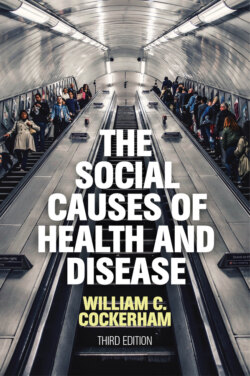Читать книгу The Social Causes of Health and Disease - William C. Cockerham - Страница 6
Preface
ОглавлениеFor more than three-quarters of a century, medical sociology has evolved as a subdiscipline of mainstream sociology. In the beginning, it was more indebted to medicine than sociology for its support, even though the field evolved into one of the most popular sociological specialties. Time invariably brings change, and medical sociology has indeed changed since its inception. The old claim that medical sociology is atheoretical has been definitively quashed; there is now even a specialized journal (Social Theory & Health) and books on the topic. Sociological theory has become one of the most essential and distinctive research tools in the field.
Moreover, medical sociology has positioned itself to provide even more precise and extensive analyses of the social aspects of health and disease. The first edition of this book represents one of the first treatises of the twenty-first century describing a new direction for research – namely, the investigation of the social determinants of health – that as predicted has become commonplace. This third edition follows up on that argument. The book begins with the notion that society can make you sick and then explains how this happens.
The revised book is a continuing extension of a lecture I presented at the University of Montreal on a cold, grey, slushy, wet Canadian afternoon long ago in January 2006. This presentation was part of the university’s “Alexis de Tocqueville: Questions on American Society” lecture series. Arnaud Sales of the Sociology Department and Andrée Demers of Groupe de recherche sur les aspects sociaux de la santé et de la prevention (GRASP) were wonderful hosts. In preparing for this lecture, I wanted to look forward in discussing medical sociology and focus on the future rather than the present or past. It seemed clear that the current state of theory and developments in statistics for multilevel and longitudinal analyses allows medical sociologists to better assess the effects of different layers of social structure on the health of individuals. This not only forecasts a greater concern with structure in our future work, but will also permit us as a community of scholars to further uncover the social mechanisms that cause health and disease. This book represents a continuing step in that direction.
I would like to acknowledge the assistance of Jonathan Skerrett, the sociology editor for Polity in Cambridge, England, for his continued high level of professionalism and insightful strategies for revisions concerning this manuscript. Also, I would like to acknowledge the contributions of Karina Jákupsdóttir, the assistant sociology editor in the production of the manuscript.
Mike Bury, Emeritus Professor of Sociology at Royal Holloway University London, was a stalwart critic as a reviewer for Polity on the first edition. His detailed comments helped sharpen the book’s thesis, and he went beyond reviewing to make many cogent and lasting suggestions that proved to be extraordinarily helpful. I would like additionally to acknowledge former University of Alabama at Birmingham doctoral students Brian Hinote, Jason Wasserman, Carrie Betcher, and Katie McIntyre, who provided important assistance for various editions of this book. Anonymous reviewers for Polity likewise provided very helpful comments. I would also like to acknowledge the library resources and support of the sociology departments at UAB and more recently at the College of William & Mary which proved significant in supporting this work. Finally, I would like to thank my wife, Cynthia, for her continued support. Time and time again, as noted previously, she has proven herself to be an intelligent, insightful, and wry observer of the human social condition.
William C. Cockerham
Williamsburg, Virginia
